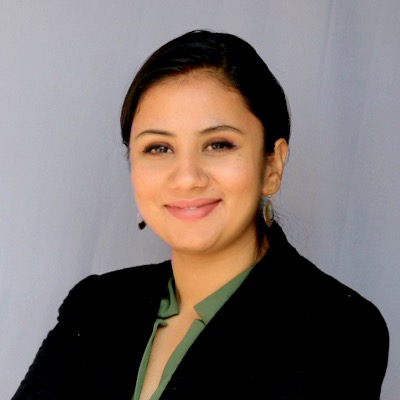Columns
Introduce flexibility in education
The option to switch disciplines is crucial to keep up with a rapidly changing job market.
Sarita Sapkota
Supplying education effectively during the pandemic has been one of the biggest puzzles facing policymakers, educators and parents. Among the pre-existing challenges the pandemic has exposed and heightened in Nepal, lack of flexibility is one. However, something peculiar about the flexibility problem is that, unlike other challenges, it could be a powerful policy tool to respond to the immediate crisis of education supply as well as reform the longstanding issues in serving the purposes of education.
The flexibility problem
Global data maintained by UNICEF puts school completion rates for primary, lower secondary and upper secondary levels for Nepal at 78 percent, 66 percent and 44 percent respectively (based on the Demographics and Health Survey 2016). This demonstrates that well before the pandemic, we were already losing young learners at an alarming rate at higher levels of schooling, and it is reasonable to expect the situation to worsen during the pandemic. Schools have remained close for a long time already and alternative modes of delivery (radio, television, internet) are weakened by access, among other things. Young girls are disproportionately affected as only 39 percent of female students complete the upper secondary level compared to 52 percent of male students.
Getting these students back in the education system is definitely a priority, but the trajectories of young students at the upper secondary levels differ from those in primary and lower secondary, and thus the policy response should be different. Young students at the higher secondary levels who drop out can be expected to immediately enter the job market, and are less likely to come back to schooling compared to students at the primary and secondary levels. The vast number of students who enter the job market without completing high school are likely to work for a number of years and get experiences in different fields. However, they do not have a chance to come back to the formal education system at the tertiary level based on those experiences. Their only option, in the current educational set-up we have, is to go all the way back to high school a few years from now if they want to take advantage of education to improve their economic prospects. This is the flexibility problem.
By closing the option to integrate into the formal education system at the tertiary level, we are introducing a ceiling on the individual’s earning potential. He or she may or may not have abilities to succeed in the coursework for a bachelor degree in agriculture, but that’s not the point here. The problem here is that our current system does not even allow him or her a chance to demonstrate such an ability and apply for the bachelor’s degree and sit in the entrance test.
The education system is right in being concerned about a person’s ability to handle the coursework they are getting into. However, it should not ignore that one can master prior concepts, language abilities and other things required to academically succeed in a course on self-initiative (for example, online courses) or through experience. Prior level of completion and field of academic degree should not be a lifelong barrier, and a chance to appear in the entrance exam should be widened as much as possible.
The rationale for flexibility
The flexibility problem is not limited to students who drop out before completing an education level. The one-way movement from science to arts or management but not the other way around has also helped maintain the unjustified notion that students studying science subjects in higher education are smarter, and can adapt to arts or management subjects; but those who are in the latter fields are somehow incapable of learning science. This is why it is common to hear about undue pressure young learners face from family and relatives to pick the science stream in their high school against their interests. Maintaining openness and flexibility can free young students from the pressure of committing to a field they don’t even know they are interested in at a very early age. Keeping the door open for people to pursue their interests and excel in the field of their choice, no matter at what age they make those choices, is how we get a hardworking, learning-centred, innovative, skilled, critical mass of people we need to graduate to a middle-income country by 2030.
It is a conundrum when we so often hear employers saying they are not finding qualified people when the country has large unemployment and underemployment. One of the issues here is ‘signal’. To employers, a qualified person is one with some level of tertiary education. Surely, experience also counts, but in a market like ours where ‘fake’ certificates of experience are plenty and not quite trusted by an employer, a formal education degree can be a stronger signal. When we are losing a large percentage of young people before they complete the upper secondary level, and they don’t have an easy way to come back to the formal education system, the signalling problem will remain; and so will the mismatch, which isn’t helping service the government priority of increasing employment rates.
There has been some progress in the field of technical and vocational education and training. The National Skill Testing Board under the Ministry of Education allows candidates to sit for certification tests in different occupations based on work experience as part of the ‘recognition of prior learning’. More than 200 occupations in over two dozen trades are available for recognition of prior learning, and the National Skill Testing Board is looking to expand its test offer based on demand. The recommendation is to extend a similar approach to the formal education system.
The rapid growth of hybrid courses in the country with affiliation with Western or other Asian universities offering joint degree programmes can also be seen as a market response to the demand for more flexible education. These programmes offer students the opportunity to explore their intellectual curiosities to excel in topics that don’t fit in the traditional package of bachelor’s and master’s offered in Nepal. More so than ever, the expertise needed in today’s market is cross-disciplinary, and expertise from an academic degree can easily go from in-demand to out-of-demand in the four years it takes to graduate college. Hence, flexibility, including the option to switch or combine across disciplines seamlessly is crucial to keep up with a rapidly changing job market, and respond in time to the pressures the economy is facing under the pandemic.
***
What do you think?
Dear reader, we’d like to hear from you. We regularly publish letters to the editor on contemporary issues or direct responses to something the Post has recently published. Please send your letters to [email protected] with "Letter to the Editor" in the subject line. Please include your name, location, and a contact address so one of our editors can reach out to you.




 9.89°C Kathmandu
9.89°C Kathmandu















